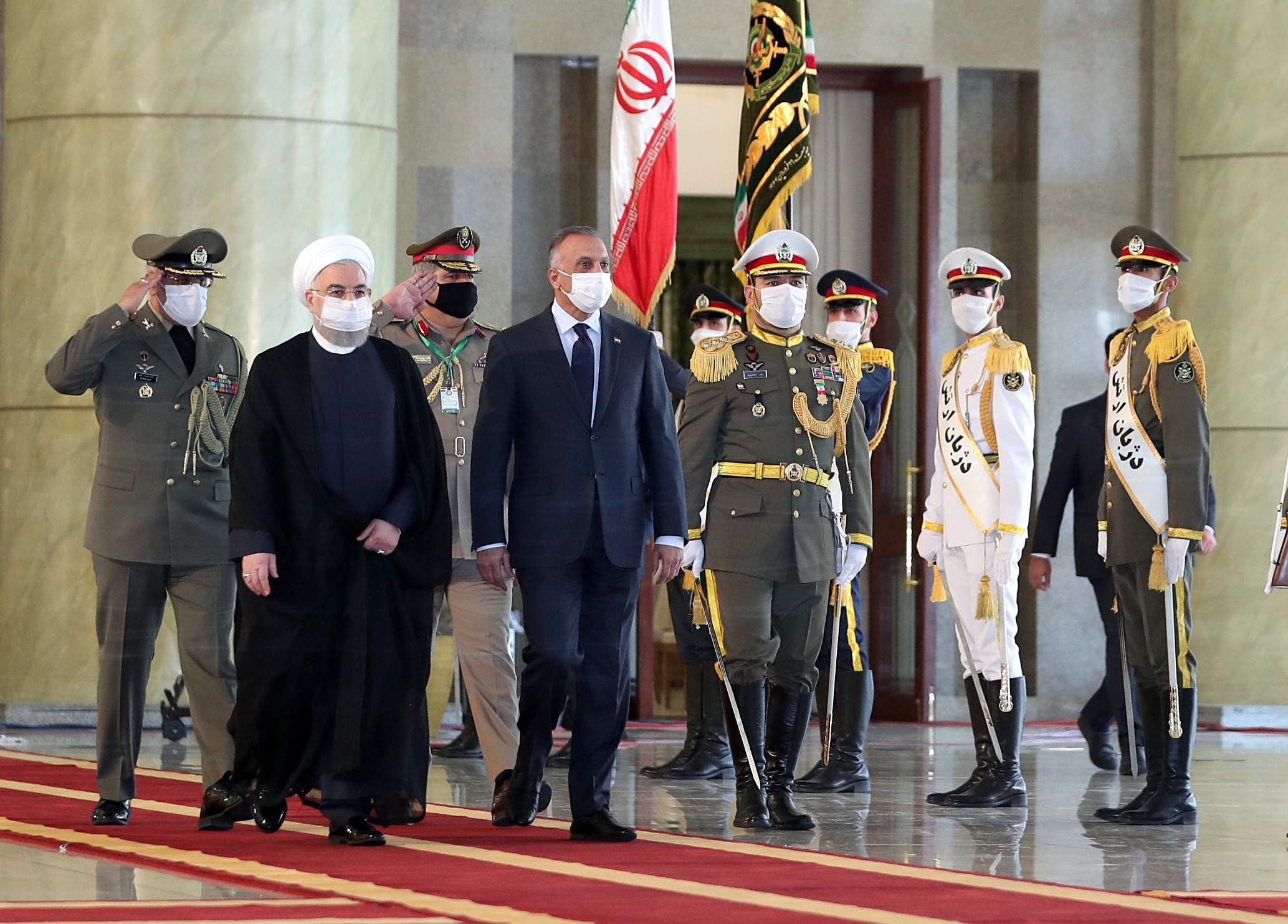Following the recent visit of Iraqi Prime Minister Mustafa al-Kazemi to Iran, a positive and clear vision for the future of Tehran-Baghdad relations has been formed in the media and economic circles of the two countries. In fact, some analysts describe a stable period in the current state of relations between the two countries in terms of the will to expand relations, while others believe that in the not too distant future, Iran-Iraq relations may enter a new phase and a series of obstacles and restrictions may be created on the development of bilateral relations.
In fact, what should be considered about Iran-Iraq relations includes two categories of factors; First, a series of stable factors such as the neighborhood factor, long borders, the bilateral will to expand relations, the level of relations and shuttles between the officials of the two countries at various levels, including political and economic, which are signs of the process of cooperation and prospects in relations between Tehran and Baghdad.
The other category is related to creating hurdles in the relations between the two countries by the rivals, and it should not be assumed that Tehran-Baghdad relations are always moving on the same track, because in between there are rivals who are trying to disrupt these relations. As in recent years, there have been developments that can affect Tehran-Baghdad relations.
Regarding the first factor, it should be noted that before Al-Kazemi’s visit to Iran, Iranian Foreign Minister Mohammad Javad Zarif visited Iraq, and several high-ranking Iranian economic officials had previously visited Iraq. In the meantime, Mr. Zarif’s visit to both Baghdad and the Iraqi Kurdistan region is interesting; Because, although this trip took place before Mustafa al-Kazemi’s visit to Tehran, its fulfillment shows Iran’s commitment to improving two levels of relations with the Iraqis; The first is the expansion and consolidation of political relations and the role that Iran has played in the stability of Iraq, and the second is the integration of political relations with economic decisions. At the same time, Mr. Zarif’s visit to Iraqi Kurdistan shows that the Iraqi Kurdistan region is important for Iran from both political-security and economic perspectives.
In the economic field, due to the long border between Iran and Iraq and the activity of markets and border crossings between the two countries, conditions have been prepared with the aim of developing relations between Tehran and Baghdad. Therefore, trade and investment platforms and insurance coverage and guaranteed investment in Iran-Iraq relations can be effective and progressive in the future, and the meetings that take place can also be evaluated in this context.
Another issue relates to the political relations and bonds that exist between Iran and Iraq, and the contacts Iran maintains with Iraqi groups, statesmen and various factions have been on the way to completing the political process in this country.
But there are two important issues regarding the future of Iran-Iraq relations; First, what are the economic cooperation, trade relations, and new areas that can contribute to the consolidation of affairs, and to what extent is the issue of investment and accelerating trade and communication between the productive, private, and public sectors a priority for the parties?
Another point is that in any case, there is a need for neighborhood and different levels of communication between Iran and Iraq in the fields of energy, etc.; but, as I mentioned, these issues simply cannot be placed in a defined circuit and it can be assumed that this will be a constant process. Because Iraq is in a situation where it wants to take new steps in the field of foreign relations with different countries, and this is one of the priorities of the Al-Kazemi government.
In the meantime, the disruptive factors in the relations between the two countries should not be ignored. In the regional arena, many emphasize Saudi Arabia’s efforts to gain a stronger presence and influence in the Iraqi market. Also, the role and position of Turkey in the economic field in Iraq and its efforts to stabilize this situation and deepen relations are remarkable. However, it should be noted that Saudi Arabia’s view is an interventionist view of Tehran-Baghdad relations to reduce Iran’s influence, which is in line with US policy. They are trying to reduce Iran’s connection to the Iraqi political and social body, which is the general US policy on Iran’s relations with Iraq.
Al-Kazemi is also scheduled to travel to the United States in the near future; his first foreign trip to Iran shows the status of Iran in the region and relations with Iraq. However, the Iraqi Prime Minister’s visit to the United States is important in two ways: The first is that the United States and Iraq have deep ties, and the second is that expectations in Iraq are based on an emphasis on the withdrawal of American troops from their country. On the withdrawal of the United States from Iraq this is an issue that affects both Washington and Baghdad relations, as well as regional relations in Iraq.
Finally, it seems that the new Iraqi government, in addition to the Islamic Republic of Iran, seeks to draw new relations with countries in the region and beyond, in which countries such as Saudi Arabia, Turkey and the Persian Gulf countries are given priority.
With the expansion of these relations, Al-Kazemi first seeks to increase the economic status of his country through cooperation and attracting investments, because Iraq is suffering from economic problems in various fields, and secondly, from a political point of view, he needs to improve the economic level and solve problems to improve his political performance. It will improve over the next year as elections are scheduled.










0 Comments